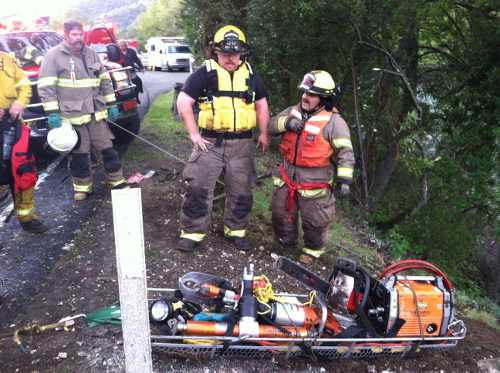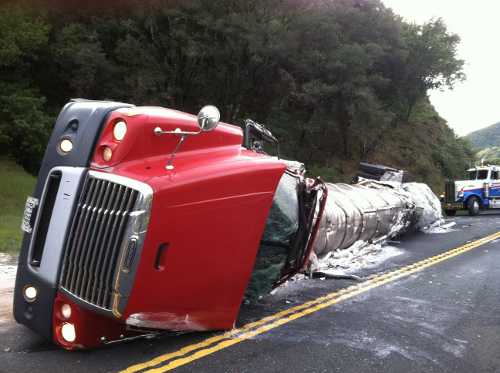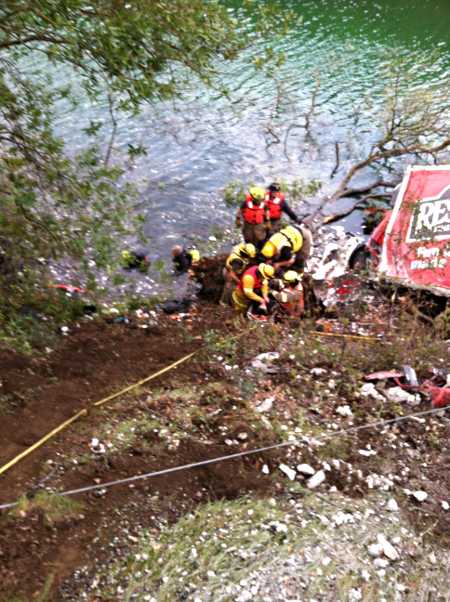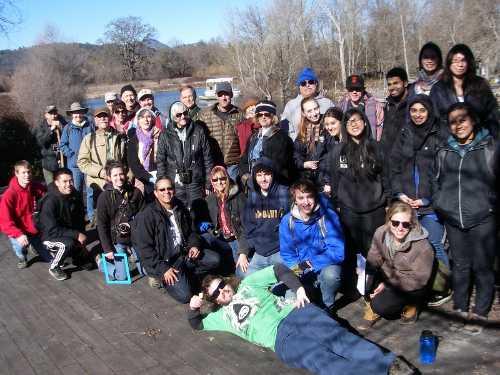This story has been updated with the new date and time for the hearing.
LAKEPORT, Calif. – A hearing set for early next month will decide whether the county’s sheriff can move forward with a lawsuit over his placement on a list of officers with credibility issues by the district attorney.
On Tuesday District Attorney Don Anderson filed a demurrer in the suit brought at the end of February by Sheriff Frank Rivero.
A demurrer is a formal objection to an opposing party’s case. It disputes the sufficiency of a case and argues that, even if the facts are true as alleged, the lawsuit lacks legal merit.
Anderson is seeking to have the matter dismissed, to have Rivero and the Jones and Mayer law firm sanctioned, and to force Rivero to personally repay the county for the legal fees it has paid for his independent counsel in the matter so far.
Anderson argues that Rivero’s suit lacks sufficient facts to justify causes of action and that the local court has no jurisdiction.
A hearing is tentatively scheduled for 1:30 p.m. Tuesday, May 7, in Lake County Superior Court before retired Butte County Judge William Lamb.
Rivero did not immediately respond to a request for comment. His response to the demurrer is expected to be filed with the court in the weeks before the May 6 hearing.
In February, at the end of a nearly two-year-old investigation, Anderson concluded that Rivero had lied to investigators about his actions during a February 2008 shooting.
Rivero, then a deputy sheriff, shot at a man holding a can of pepper spray, a violation of sheriff’s office policy. The man was not injured.
In March 2011, a complaint about Rivero lying to investigators about the shooting was made to Anderson’s office. Based on an initial review, Anderson said he “formed the opinion that there was substantial information Rivero lied during the 2008 investigation,” according to case documents.
At the end of the investigation, Anderson said he “continued to hold the opinion that there was substantial information that exceeded a clear and convincing evidence standard that Rivero did not tell the truth on February 19, 2008 regarding the investigation.”
It was then, and still remains, Anderson’s opinion that the District Attorney’s Office has the obligation to place Rivero on a “Brady” list of officers with credibility issues and to disclose this to criminal defendants when Rivero is to be a material witness in a case.
“Brady” refers to the 1963 US Supreme Court case Brady v. Maryland, which requires that prosecutors release to criminal defendants any information that could clear them, including credibility issues of peace officers involved in their cases.
Rivero filed suit against Anderson in an effort to prevent him from divulging the materials to criminal defendants. In a March 4 hearing, which Rivero also had wanted to be closed, Lamb ruled the materials – and the hearing – were to be public.
The week prior, retired Lake County Superior Court Judge David Herrick already had ruled the materials were to be released to three Sonoma County Hells Angels members facing prosecution for a June 2011 fight with a rival gang member.
In Anderson’s demurrer filing, he seeks to have the suit dismissed, noting that in his case Rivero “asserts four causes of action in his campaign to judicially and radically change both State and Federal statutes and well settled case law.”
The filings state, “Plaintiff is requesting this court change current and well settled law by ordering the District Attorney to conceal and not disclose exculpatory evidence of an officer’s lack of credibility, until the officer has a due process hearing and judicial review, which would include appellate rights. This suggested process could take several years to complete. If plaintiff is successful, in many cases a criminal defendant would not receive valuable impeachment evidence before or during his trial, thus depriving him of a fair trial.”
Anderson maintains in his filings, “The responsibility for Brady compliance lies solely and exclusively with the prosecution and that duty is non-delegable, not even to the police or the courts. The prosecution must disclose material exculpatory evidence whether the defendant makes a specific request.”
While Rivero has argued that his due process rights were violated and the procedures Anderson used to make his Brady determination inadequate, Anderson writes, “There is no known authority that a peace officer has any right to a hearing or evidentiary hearing regarding a Brady determination being made. To the contrary all authority clearly states that decision is at the sole discretion of the District Attorney.”
Anderson quotes extensive case law that appears to settle the matter – and establish the responsibility of district attorneys in disclosing Brady materials – with many of the case rulings coming in recent years in higher state and federal courts.
In the 1997 case Roe v. City and County of San Francisco, filed by a plaintiff placed on a Brady list, the court ruled that the district attorney had absolute prosecutorial immunity because the decisions involved “are intimately associated with the judicial phase of the criminal process,” Anderson wrote.
“Whether their assessment is accurate or not is immaterial,” according to that 1997 ruling. “This kind of witness evaluation falls entirely within a prosecutor’s judicial function … Just as a prosecutor’s professional evaluation of the evidence assembled by the police is entitled to absolute immunity, a prosecutor’s professional evaluation of a witness is entitled to absolute immunity, even if that judgment is harsh, unfair, or clouded by personal animus …”
A 2009 case from Washington state, Laskey v. Lewis, ruled that a deputy sheriff suing over his Brady listing “failed to identify any law that recognizes a police officer’s right to a name-clearing hearing after a Brady determination is made.”
A 2010 US District Court case Neri v. County of Stanislaus found that district attorneys in California serve both state and county functions and possess Eleventh Amendment immunity when acting in their prosecutorial capacity. The plaintiff, Neri, was placed on a Brady list, and that action, as well as disclosure of Neri’s Brady material, were done in a prosecutorial capacity and while acting as a state agent, again giving the prosecutor immunity.
A US District Court ruled in the 2011 case Nazir v. County of Los Angeles that creating a Brady determination procedure, evaluating a witness’s credibility, determining what constitutes Brady material and decisions on whether to use a police officer as a witness in the future are prosecutorial functions of the district attorney acting as a state officer.
“Therefore, the allegations against the District Attorney are against the state and are barred by Eleventh Amendment immunity,” Anderson wrote.
Anderson also argued in his filing that the action Rivero is seeking from a state court would infringe on Anderson’s responsibilities under federal law and that the state court, ultimately, has no jurisdiction in the matter.
In addition, he said Rivero is seeking a writ of mandate, which case law establishes cannot be used to control a matter of discretion. Placing an officer on the Brady list, Anderson stated, is not ministerial, but discretionary, and solely up to the district attorney.
“Therefore, the plaintiff must show in the pleading that the defendant’s conduct by placing the plaintiff of the Brady List was fraudulent or so palpably unreasonable and arbitrary as to indicate an abuse of discretion,” Anderson wrote. “In this matter, the plaintiff has made no such showing.”
Anderson is asking the court for attorney fees and sanctions against Rivero and his attorney, with Anderson asking that his fee be set at $300 based on the “Lodestar” method for determining attorney’s fees, and that Rivero and his attorney also be sanctioned the amount in which the county of Lake has paid – or will have to pay – Rivero’s attorney for litigating what Anderson called a “frivolous” lawsuit.
In addition, Anderson wants any attorney fees or sanctions placed against Rivero to be awarded against him personally and found not to be the county’s obligation.
Email Elizabeth Larson at This email address is being protected from spambots. You need JavaScript enabled to view it. . Follow her on Twitter, @ERLarson, or Lake County News, @LakeCoNews.
030413 Lake County District Attorney's Final Report Regarding Sheriff Rivero Brady determination by LakeCoNews














